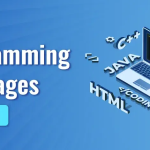
Today, more than ever, businesses and governments are becoming more data-driven. This is helped by the fact that, today more than any time in our history, data is more readily available. The amount of data we produce is humongous and is fueled by the accelerated adoption of technology and data-driven tools. The website visual capitalist projects that by 2025 we will be producing about 463 exabytes of data each day!
With data being more available, and corporations and governments being more data driven, there is an increasing demand for people, employees and business executives to adopt a data mindset. Some of the most demanded skills of the future will be centered around data fluency whether one is a techie or a non-techie.
Yuval Noah Harari, author of the bestseller, Sapiens, suggests that the rise of data-driven technologies has changed the way we make decisions. The ability to capture, store,synthesize and analyze data has become a critical skill for many organizations today. However, not everyone is comfortable working with data and may find it overwhelming or confusing. The lack of data fluency or data literacy is therefore becoming a big impediment to building competitive advantages either at individual, corporate or government level.
What is data fluency?
Data fluency is the ability to read, interpret, and communicate data effectively.
Contrary to the general perception, data fluency is not a skill just for data scientists or analysts but a skill that anyone can and should aspire to. With the ability to work with data, one can understand the story behind numbers, statistics and make more informed decisions based on evidence.
There are so many benefits that one would get from being more intentional with data. As we are constantly making decisions in and around our environment every single day, a data fluent person will see the quality of their decisions increasing over time. The idea here is not to go all out and start on a journey of being a data nerd but it’s more about always trying to identify patterns from everyday circumstances and building from that.
But how does one become more data fluent?
Tips to becoming more data fluent
As it is with any new skill or craft, becoming a data fluent individual will take time and practice to perfect. The secret source is to adopt an incremental learning mindset and focus on learning at least one new thing everyday. The following are some tips you can adopt as you start on becoming a data-driven individual:
Start with the basics: Always start with the basics! Many people want to jump into the more complex and nerdy stuff so they can, perhaps, show off their skills to their friends and associates. However, it always pays to start small, simple and with the boring stuff. Some key concepts that one can cover at the basic level include learning more about data types, data sources and data analysis techniques.
Experience is the best teacher: Nothing beats experience and practice! Theory is always great, but hands-on experience will convert your data fluency engine from a honda civic to a ferrari in no time. The best way to practice is to try working with real data sets to run basic analytics. Freely available tools like google sheets, data studio, microsoft excel and tableau can get you up and running in no time.
Get a mentor or coach: The role of a mentor or a coach can make the difference between what you learn and how you apply it in context. Mentors and coaches can help us see what is not obvious. They can also help us unlearn ideas and routines that are not useful to the application of a data mindset.Joining communities of data enthusiasts and online forums can accelerate your learning and help you navigate the tough terrain.
Tell your stories with data: One of the things data nerds tend to forget is that what makes sense to them may not be so obvious to the next person. Data visualization can help you tell better stories with data. Your goal is to make the data speak for itself. As you become better, your aim should move you towards making your presentations concise and leverage data narratives, storytelling and visualizations to help the rest understand the stories behind your numbers.
What next?
If you want to learn more about data, there are many places you can go to in order to get started. Institutions like Moringa School have great programs for those who want to get started on data fluency.
By developing your data fluency, you’ll be able to make better decisions, solve problems more effectively, and communicate your ideas more persuasively. Data isn’t just for techies; it’s for everyone!
Allan Ong’ang’a
Director-Business Development
Moringa











